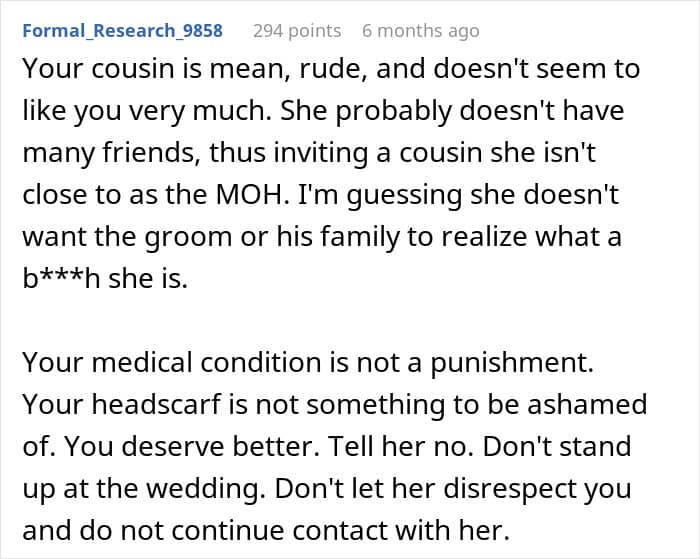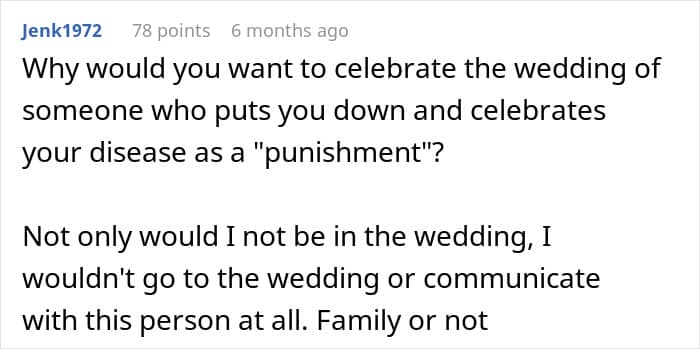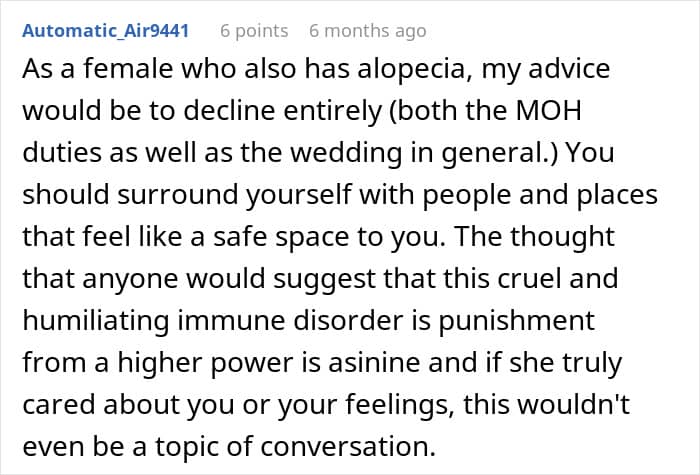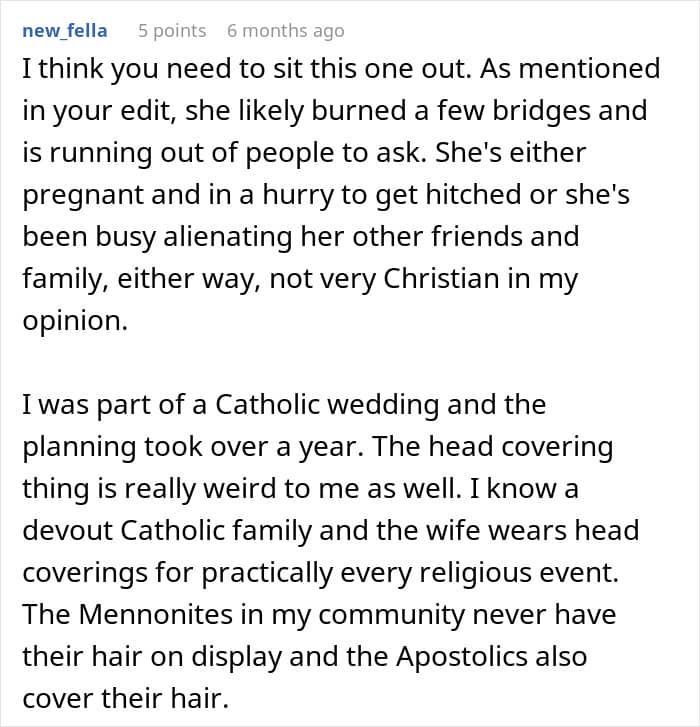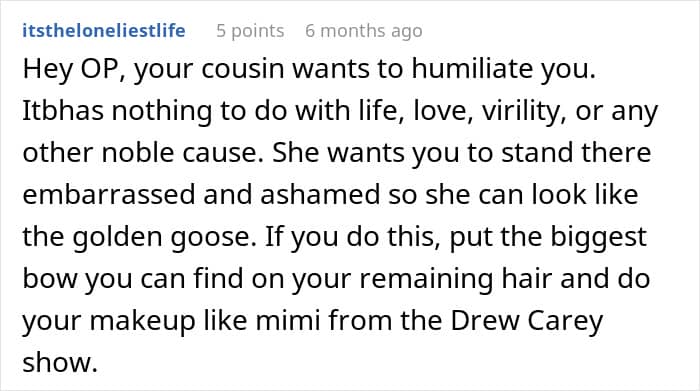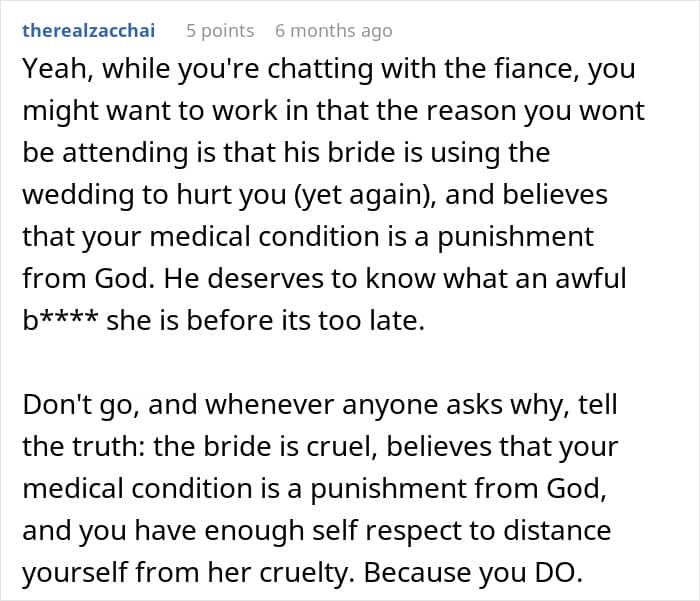Weddings are usually all about the couple’s dream day: every flower, flavor, and playlist picked to match their vibe. And hey, fair enough! It’s their big moment. But just because they’re calling the shots doesn’t mean they get a blank check to control everyone else. Guests and wedding parties still have their own lives, looks, and boundaries; and that deserves respect too.
Recently, a woman with alopecia shared her dilemma. Her cousin, the bride, invited her to be Maid of Honor, but with one strict condition: she couldn’t wear her headscarf or wig. The bride reportedly called these coverings “a disgrace.” This left the author, who’s worn a headscarf since childhood, questioning whether to attend at all. Unsure of what to do, she decided to speak with the groom before making any big calls. Keep reading to find out how this family drama unfolded and what decision she made in the end.
RELATED:
Wedding celebrations can take a difficult turn when the bride or groom sets too many strict demands
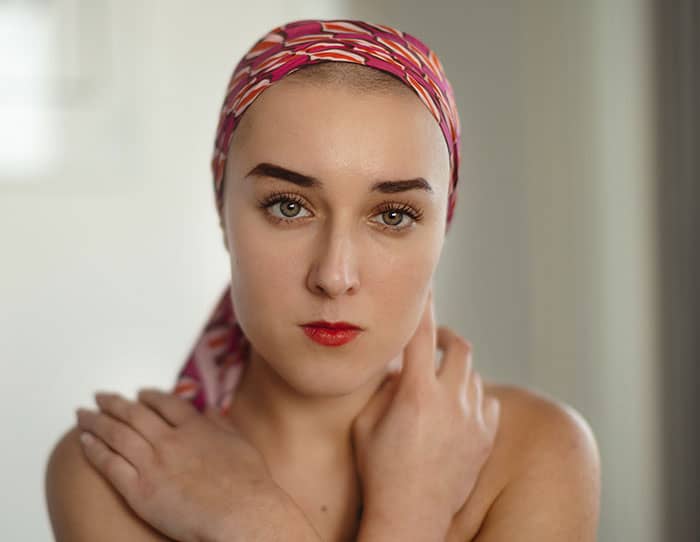
Image credits: halfpoint/Envato (not the actual photo)
A woman with alopecia seeks advice online after her cousin, the bride, requested she not wear any head coverings at the wedding
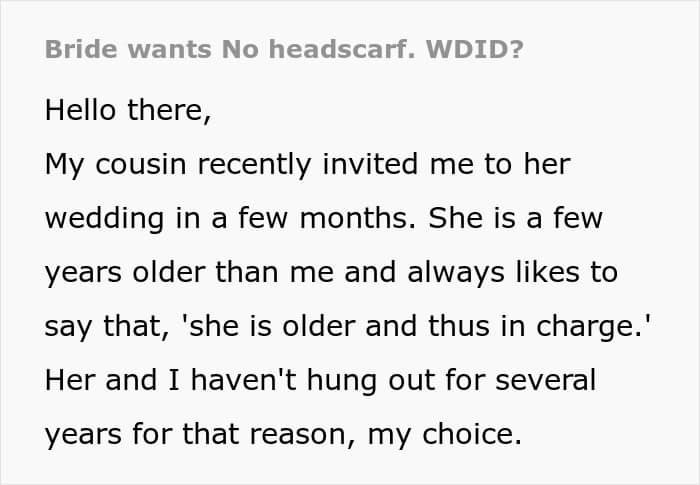
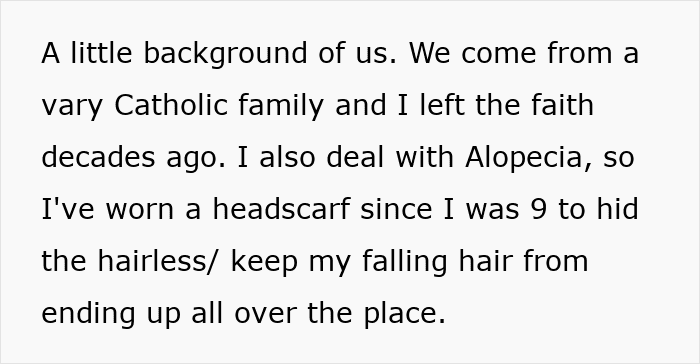

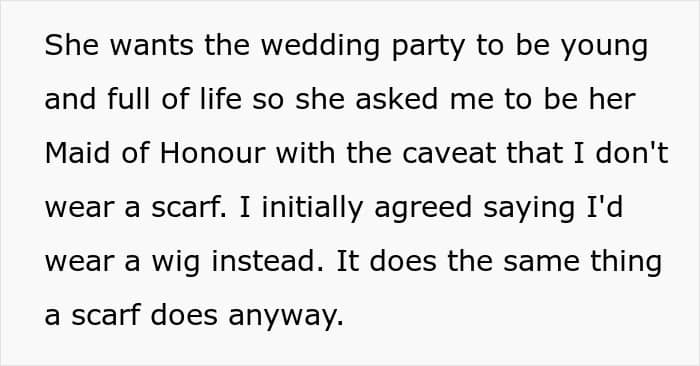


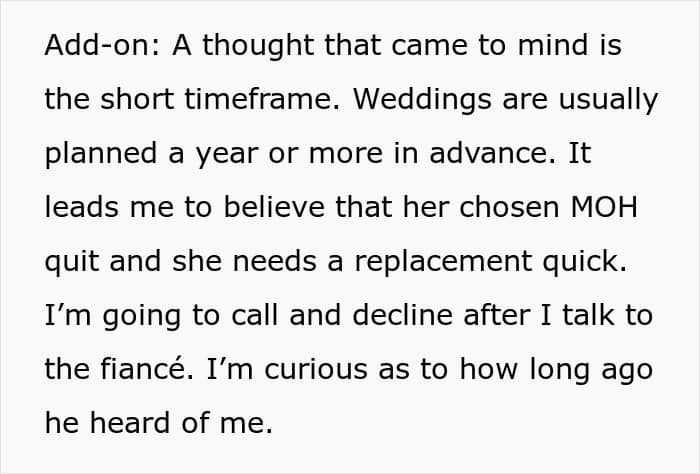

Image credits: LightFieldStudios/Envato (not the actual photo)



Image credits: autistic_artist_4501
Alopecia areata is a surprisingly common autoimmune disease that affects millions of people worldwide
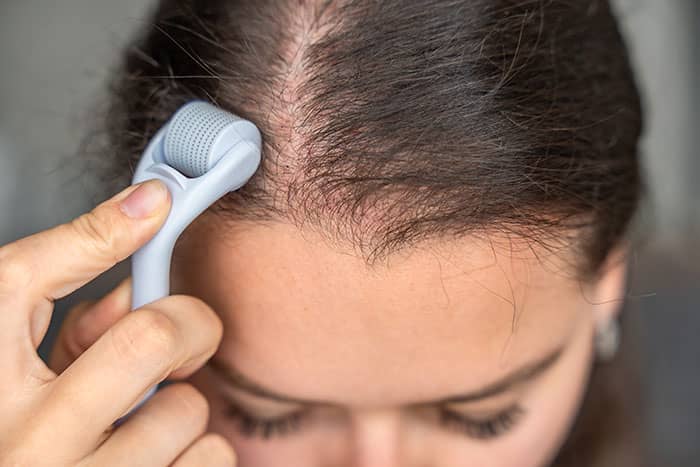
Alopecia means hair loss, but it can affect people in different ways. For some, it might only cause hair loss in one spot, while others experience it across multiple areas on the scalp, face, or even the whole body.
There are several types of alopecia. These include common types like male and female pattern hair loss, as well as autoimmune forms like alopecia areata. Male pattern hair loss causes hair thinning along the hairline and crown of the head, often leading to baldness. It’s very common, affecting nearly half of men over 40, and tends to be genetic. Unfortunately, there’s no way to completely prevent it.
For many women, hair thinning is a gradual process that can progress over the years, affecting the entire scalp. Sometimes higher levels of androgens (male hormones) can play a role in the condition. While treatments can help slow down the process, many women find that certain hair products can effectively cover thinning areas.
Alopecia areata is a bit different. It’s an autoimmune condition where the body’s immune system mistakenly attacks hair follicles, leading to patchy hair loss. Though the precise cause remains unclear, it’s often a mix of genetic and environmental factors, with triggers like stress possibly playing a role.
Telogen effluvium is another type of alopecia that occurs when a shock—either physical or emotional—disrupts the hair growth cycle, temporarily stopping new hair growth and causing older hairs to shed. Common triggers include major events like childbirth, illness, surgery, or even periods of intense stress. But telogen effluvium is usually temporary.
People with alopecia often find various ways to cope that help them feel comfortable and confident
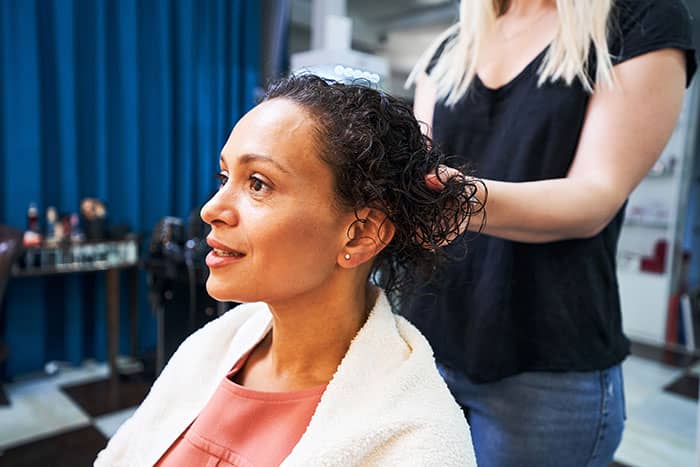
Treatment options for alopecia really depend on what’s causing it. If hair loss is linked to an underlying health issue, sometimes addressing that root cause can lead to hair regrowth. For certain types, like androgenetic alopecia, medications might slow down the process, and autoimmune-related types like alopecia areata can sometimes be managed with cortisone treatments or other therapies prescribed by specialists.
But if treatments aren’t effective, people find creative and empowering ways to cope. Some choose wigs, head coverings, or even head shaving as a style statement. Others experiment with products that add volume to thinning areas or even explore options like eyebrow tattoos to create a natural look. The approach is often as unique as the person, turning coping mechanisms into forms of self-expression.
In this case, the bride’s request for the author not to wear anything on her head, including a wig or headscarf, struck a nerve with many readers. It’s understandable why people felt this was insensitive. For someone dealing with a medical condition like alopecia, covering one’s head can be a vital part of self-confidence and comfort, especially on significant occasions. Weddings are meaningful events, but so is respecting personal boundaries and self-expression.
What do you think? Should the bride have been more flexible with the author’s needs, or does she have a right to set the standards she wants for her special day? Let us know your thoughts in the comments.
Many people online were disappointed with the cousin’s lack of empathy and controlling behavior



